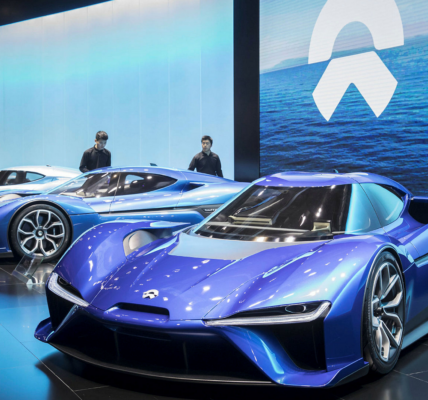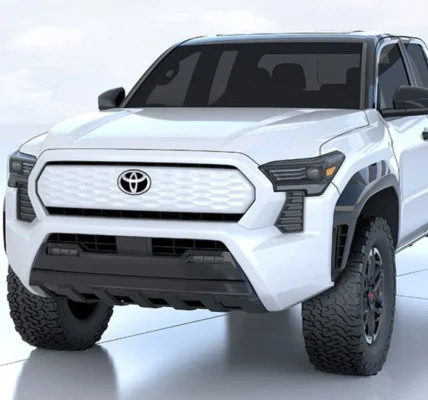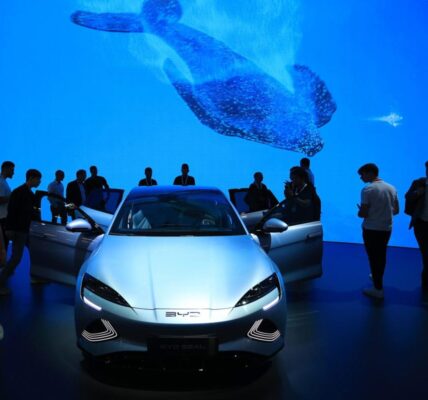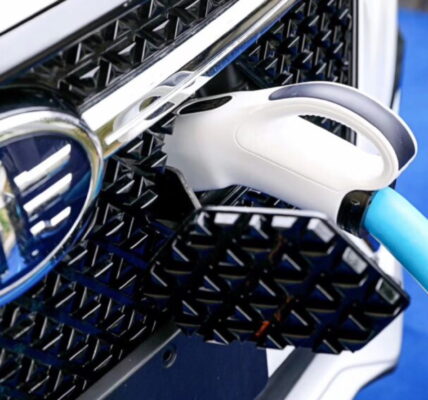Tesla boasts that its electric vehicles are a marvel not just of innovation but also ethics, pledging in annual reports that it will “not knowingly accept products or services from suppliers that include forced labour or human trafficking in any form.” The carmaker touts its teams of monitors that travel to mining operations around the world, and has pledged to mount a camera at an African mine to prevent the use of underage or slave labor.
But Tesla has been conspicuously silent when it comes to China, despite evidence that materials that go into its vehicles come from the Xinjiang region, where forced labor has been rampant. Firms that appear to undermine a U.S. ban on products made in Xinjiang emerge near the top of Tesla’s sprawling network of suppliers, according to a Washington Post examination of corporate records and Chinese media reports. Among them are companies that have openly complied with China’s quotas for moving minority Muslim Uyghurs out of rural villages and into factory towns through what Chinese authorities call “labor transfers” or “surplus labor employment.”
Tesla is among several EV companies that have suppliers with Xinjiang connections, records show. Ford has a deal with a battery maker that congressional investigators allege has ties to vast lithium mining and processing operations in Xinjiang, and Volkswagen operates a factory in the region with a Chinese partner.
Though not all labor in Xinjiang is forced, China’s lockdown on information flowing from the region led the U.S. government last year to bar the import of any Xinjiang-made parts and products out of a concern they could be made with coerced labor.
The companies’ kid-glove approach on China and potential violations of U.S. law come as the White House and powerful congressional committees scrutinize the EV industry, which is booming as automakers race to gain the upper hand in the transition to climate-friendly battery-powered engines. The situation in Xinjiang is a key point of tension in the strained relationship between China and the West, as the United States and allies step up enforcement of penalties on industries operating there.
EVs are widely considered vital for confronting climate change, and the companies that make them are at an inflection point. The contracts and accountability measures they lock in now could affect communities around the world for decades. Many experts warn that companies are failing to ensure that their supply chains are free of forced labor, washing their hands of responsibility for upstream suppliers they shrug off as out of their managerial reach.
“We know from every other industry there is that if we don’t fix this now, in the early days of this transition, it will be a massive mistake,” said Duncan Jepson, a lawyer and supply-chain management expert. “But the auto companies are not giving much hope they are willing to do anything to make a difference.”
Automakers say they take pains to ensure that their suppliers are not sourcing from Xinjiang. Their efforts are hampered by China’s lack of transparency and demands that companies doing business there fall in line with the country’s industrial and ethnic policies even when they conflict with Western laws. And they say the vast web of up to 13,000 companies that provide materials is difficult to vet.
Yet evidence of sourcing from Xinjiang lies not very deep in their supply chains, The Post found. Chinese supply chains that provide the industry with materials for batteries, bodies and wheels include companies that openly use Xinjiang labor, according to The Post’s examination.
The extraction and processing of materials used in EV manufacture, such as lithium, manganese and bauxite, are rapidly expanding, posing a test for company policies that tout respect for human rights and the environment. Tepid enforcement has contributed to the exploitation of workers in the cobalt mines of the Democratic Republic of Congo, the destruction of livelihoods in the villages of Guinea and the potential enrichment of the repressive Taliban regime in Afghanistan.
The shifting of Uyghurs from rural areas to factory towns has been part of a larger crackdown in Xinjiang, mounted by the Chinese government and aided by private industry. In recent years, Muslim minorities have been forced into reeducation camps where, rights investigators say, they undergo political indoctrination and military-style training.
Many of the reeducation camps have emptied since the peak of the repression in the late 2010s. But the United Nations said last year that the continued mass detentions may constitute crimes against humanity, and the United States accuses Beijing of genocide.
China’s secrecy and threats of penalties for those who cooperate with human rights inquiries make it nearly impossible to verify if workers in a factory or mine are there by choice. Against that backdrop, the United States last year implemented the Uyghur Forced Labor Prevention Act, which treats all manufacturing in Xinjiang as tainted by forced labor unless firms can prove otherwise.
Particular scrutiny is falling on Tesla because of its market dominance and conscientious image.
“Tesla is proclaiming one thing in its sustainability reports and English-language pronouncements and then doing something totally different,” said Nathan Picarsic, a co-founder of Horizon Advisory, a geopolitical risk advisory firm that worked with The Post to map EV company links to Xinjiang.
Tesla did not respond to detailed questions from The Post. At a May investor meeting, chief executive Elon Musk promised to place a webcam at a Congo cobalt mine but ignored calls from shareholder groups for the company to disclose and sever ties with firms suspected of using forced labor in Xinjiang. On its website, the company says it continues “to map our complex supply chains to understand their origins. New suppliers are required to disclose the details of their supply chains so we can verify sources and identify risks via third-party audits.”
Tesla relies on China as a supplier, but also a market for its top-selling EVs. It sells about 40 percent of its new cars in the country.
“The risk of not being able to sell in China is crippling to Tesla,” said an industry supply-chain consultant who spoke on the condition of anonymity to talk candidly. “There are just red lines Tesla cannot cross because of that. Talking about the problem of forced labor publicly is one of them. They might be working on the issue privately, but if they are, they won’t be talking about it.”
Chinese companies supply nearly 40 percent of the materials for batteries that go into Teslas worldwide, according to Nikkei Asia, a financial newspaper that scrutinized more than 13,000 companies in the Tesla supply chain.
Researchers at the Helena Kennedy Center for International Justice at Sheffield Hallam University in Britain found that a complex web of suppliers and middlemen allows Tesla and several other companies to source material from Xinjiang without buying directly from there.







